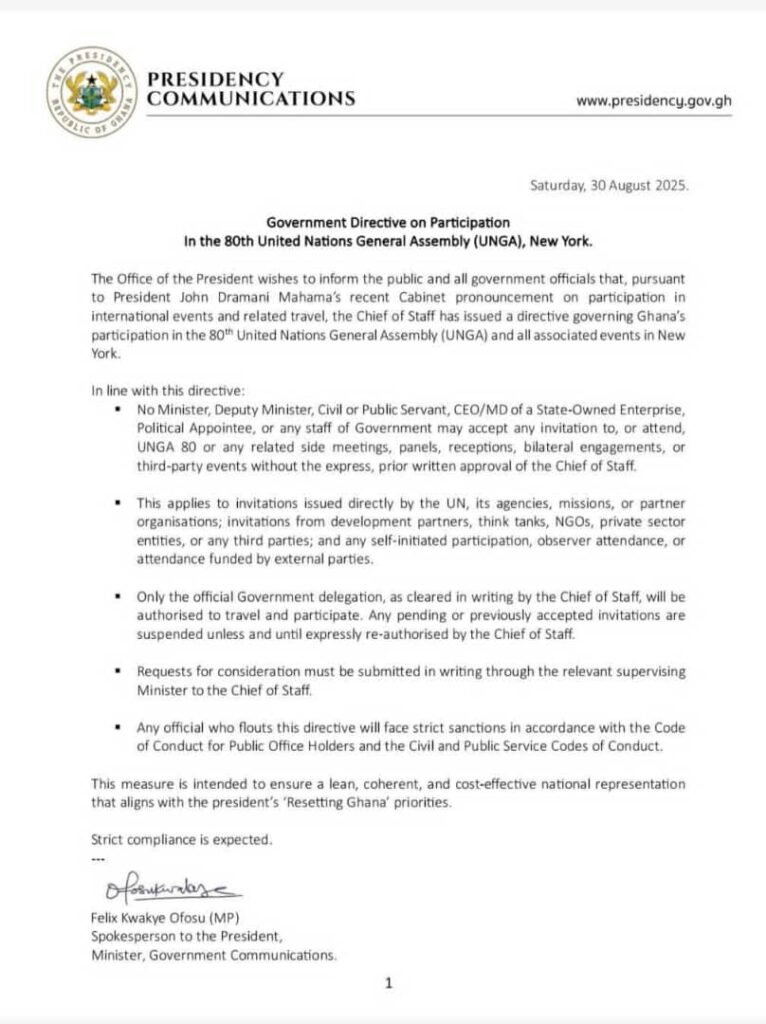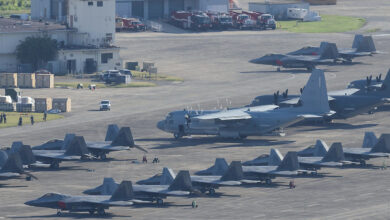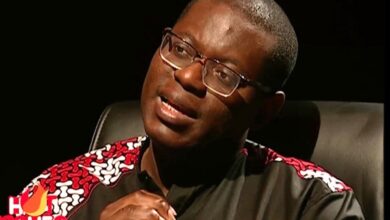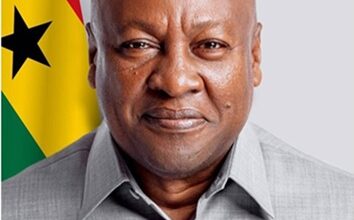Gov’t Enforces Cost-Cutting Measures, Tightens Rules on UNGA Participation
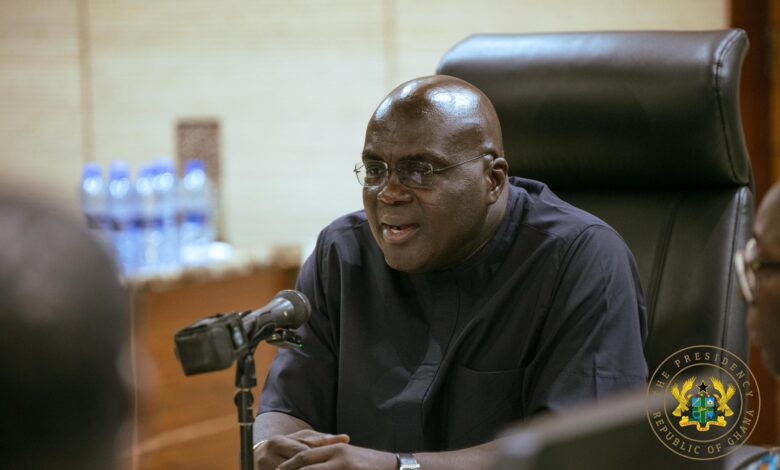
In a bid to control expenditure and ensure cost-effective representation abroad, government has announced strict new rules governing Ghana’s participation in the 80th United Nations General Assembly (UNGA) in New York.
The directive, issued by the Chief of Staff and communicated through the Presidency, underscores President John Dramani Mahama’s “Resetting Ghana” priorities, which emphasize leaner, more coherent, and financially disciplined governance.
No Travel Without Approval
According to the directive, no Minister, Deputy Minister, public or civil servant, CEO of a state-owned enterprise, political appointee, or any staff of government is permitted to attend UNGA 80 or related events without the express, prior written approval of the Chief of Staff.
This restriction applies to all forms of invitations, including those issued directly by the UN, its agencies, partner organisations, development partners, think tanks, NGOs, private entities, or any other third parties. It also covers self-initiated participation, observer attendance, or events funded by external parties.
Only Official Delegation Permitted
The Presidency stressed that only the official government delegation, as cleared in writing by the Chief of Staff, will be authorised to travel and participate in UNGA.
Any pending or previously accepted invitations are automatically suspended unless they are expressly re-authorised by the Chief of Staff.
Process for Consideration
Officials who seek approval to participate must channel their requests through their relevant supervising Ministers in writing to the Chief of Staff for consideration. This process, according to the directive, is intended to streamline requests and ensure accountability in decision-making.
Sanctions for Non-Compliance
The directive warns that any government official who flouts the instruction will face strict sanctions in accordance with the Code of Conduct for Public Office Holders and the Civil and Public Service Codes of Conduct.
Resetting Ghana’s Priorities
The Office of the President explained that the measure is not merely administrative but part of a broader effort to align government actions with the president’s “Resetting Ghana” agenda. It is aimed at ensuring “a lean, coherent, and cost-effective national representation” at international events, avoiding duplication and wasteful spending while safeguarding the country’s image.
“Strict compliance is expected,” the statement concluded, underscoring the government’s determination to enforce discipline in official representation abroad.
